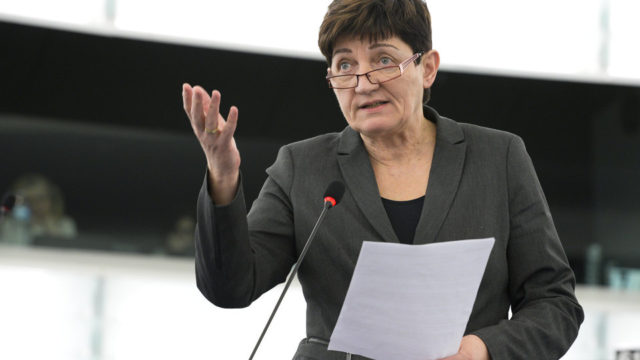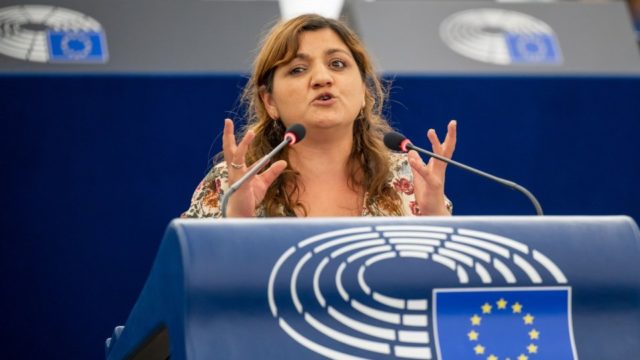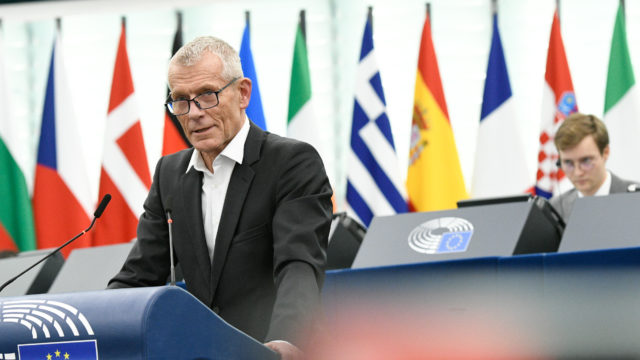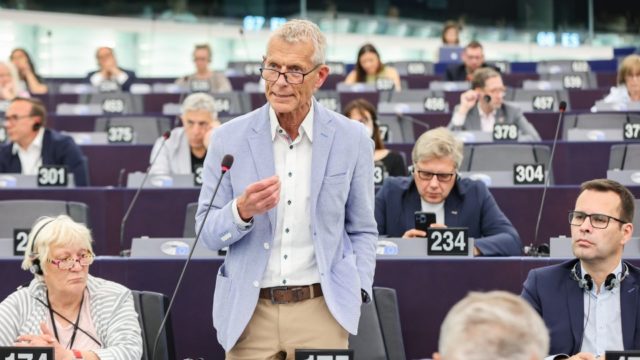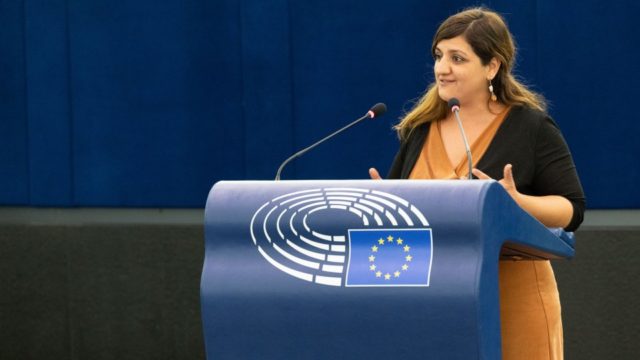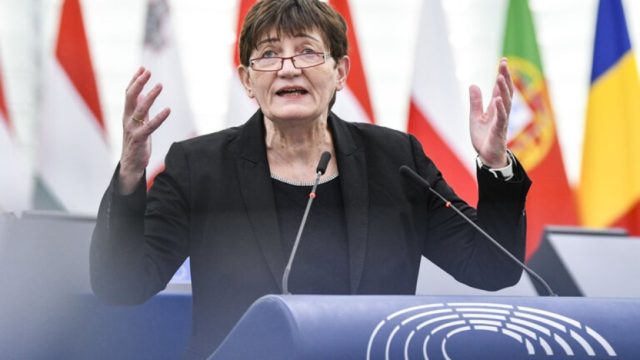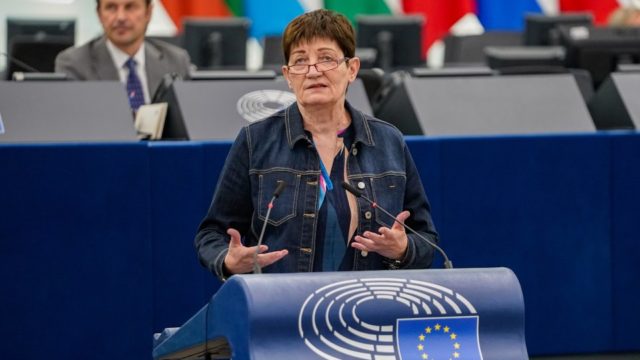 Philippe BuissinPhilippe Buissin
Philippe BuissinPhilippe Buissin
Cornelia Ernst, industrie- und energiepolitische Sprecherin von Die Linke im Europaparlament, erklärt zur heutigen EP-Abstimmung zum Netto-Null-Industriegesetz (NZIA):
„Das Netto-Null-Industriegesetz ist eine vertane … weiterlesen "Vertane Chance"
Özlem Alev Demirel, sozial- und beschäftigungspolitische Sprecherin von Die Linke im Europaparlament, erklärt zur heutigen Abstimmung … weiterlesen "JA zum Lieferkettengesetz – Menschenrecht und Sorgfaltspflicht hören nicht an Landesgrenzen auf!"
Cornelia Ernst, asyl- und migrationspolitische Sprecherin von Die Linke im Europaparlament, erklärt zur heutigen EP-Abstimmung über die Reform des Schengener Grenzkodex:
„Die Neufassung des … weiterlesen "Racial Profiling und Abschreckung"
Özlem Alev Demirel, Europaabgeordnete von Die Linke und stellvertretende Vorsitzende der Delegation im Gemischten Parlamentarischen Ausschuss EU-Türkei, erklärt zu den … weiterlesen "Hände weg von kurdischen Journalist*innen und der Pressefreiheit!"
Helmut Scholz, handelspolitischer Sprecher von Die Linke im Europaparlament, erklärt zum Ergebnis der Plenarabstimmung über das Verbot von in Zwangsarbeit hergestellten … weiterlesen "Parlament verbannt Produkte aus Zwangsarbeit vom europäischen Markt"
Helmut Scholz, handelspolitischer Sprecher von Die Linke im Europaparlament, erklärt zur Plenarabstimmung über die Handelserleichterungen für die Ukraine:
„Die Plenarabstimmung zur … weiterlesen "Erfolgreicher Spagat statt destruktiver Slogans"
Unsere Abgeordneten
 Quentin BrunoQuentin Bruno
Quentin BrunoQuentin Bruno  Quentin BrunoQuentin Bruno
Quentin BrunoQuentin Bruno  Quentin BrunoQuentin Bruno
Quentin BrunoQuentin Bruno  Quentin BrunoQuentin Bruno
Quentin BrunoQuentin Bruno  Quentin BrunoQuentin Bruno
Quentin BrunoQuentin Bruno Aus dem Parlament

Dieser Krieg muss aufhören!
Mit dem Klick des Buttons erklärst Du Dich einverstanden, dass Deine Daten an YouTube übermittelt werden.

Terror verurteilen, Frieden im Nahen Osten für alle Seiten voranbringen
Mit dem Klick des Buttons erklärst Du Dich einverstanden, dass Deine Daten an YouTube übermittelt werden.

Willow-Projekt stoppen – Rechte der Nuiqsut wahren! – Helmut Scholz zu Ölbohrungen in Kanada
Mit dem Klick des Buttons erklärst Du Dich einverstanden, dass Deine Daten an YouTube übermittelt werden.
Pressemitteilungen
Özlem Alev Demirel, außen- und friedenspolitische Sprecherin von Die Linke im Europaparlament und stellvertretende Vorsitzende im Ausschuss für … weiterlesen "Das Wettrüsten muss endlich ein Ende haben!"
Özlem Alev Demirel, sozial- und beschäftigungspolitische Sprecherin von Die Linke im Europaparlament, erklärt zur heutigen … weiterlesen "Kleiner sozialer Lichtblick – jetzt müssen Taten folgen!"
Cornelia Ernst, industrie- und energiepolitische Sprecherin von Die Linke im Europaparlament, erklärt zur heutigen Veröffentlichung der EU-Solar-Charta:
„Ich … weiterlesen "Symbolik alleine reicht nicht"
 Aktuell auf left.eu
Aktuell auf left.eu
- 25 de Abril sempre! 24. April 2024
- Parliament buries climate-killer Energy Charter Treaty 24. April 2024
- Landmark victory: MEPs take a stand against corporate exploitation 24. April 2024
- Austerity 2.0 is another attack on democracy 23. April 2024
- Left MEPs on the front line to end trafficking in human beings 23. April 2024
- Weaponising influence: EU falls for arms lobby charm offensive 18. April 2024
- Left Drive Progress in Declaration on the Future of Social Europe 16. April 2024
Aktueller Termin
26. April 2024
18:30 – 20:30 Uhr
Was tut die Kommune eigentlich für mich, für meine Stadt, für mein Dorf?
alle Termine
18:30 – 20:30 Uhr
Was tut die Kommune eigentlich für mich, für meine Stadt, für mein Dorf?


